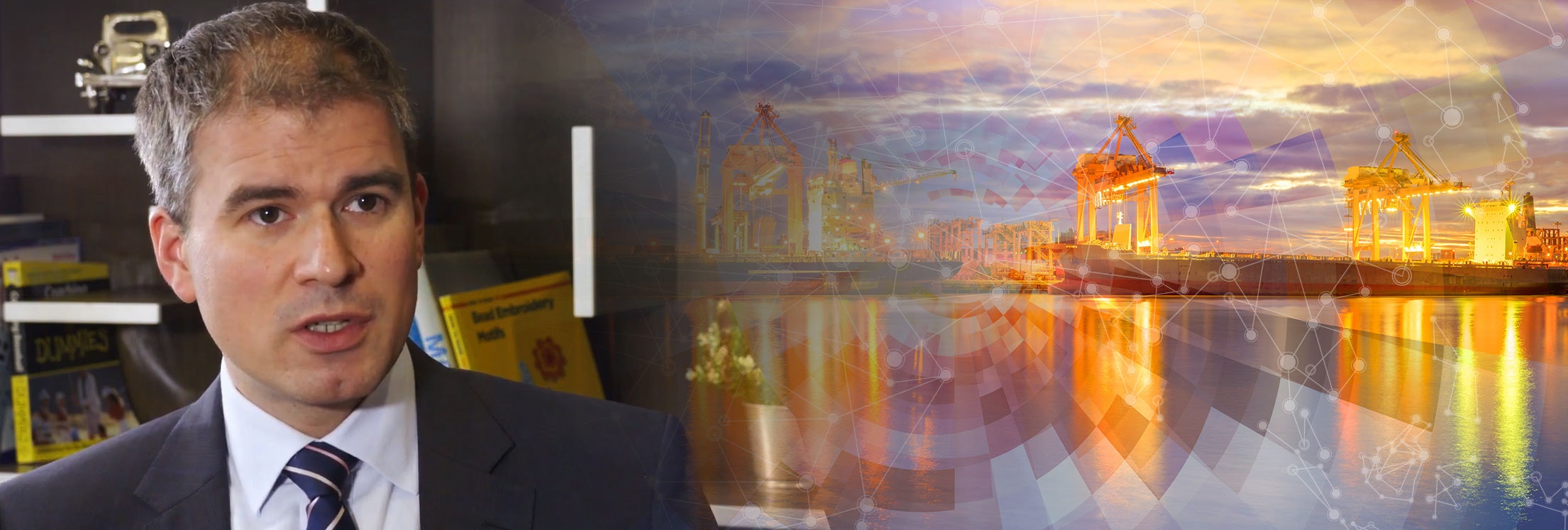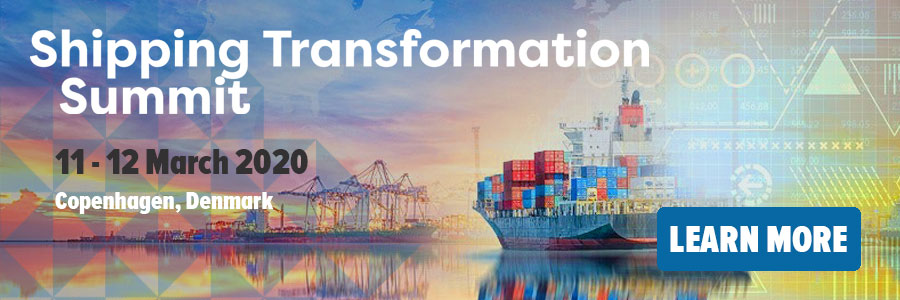Steve Saxon: estimated $30 billion value lost from maritime companies not exchanging information

Steve Saxon is a partner at McKinsey & Company and he has been at the company for 19 years.
Initially based in the London, he spent 7 years in Singapore, and the last 7 years in Shanghai - leading their work in Asia on shipping imports.
At Global Liner Shipping (Part of Shipping Transformation Asia), Mr. Saxon part of a panel discussing regional trade, he also hosted a presentation on how container shipping could reinvent itself for the digital age over the next 50 years.
We caught up with him after his presentation. (Read the transcript below)
Iain Gomersall: Digital transformation - is a wholesale transformation is required, or is the shipping industry facing a change management exercise - just several magnitudes bigger?
Mr Saxon: Shipping, like all industries, is being disrupted and digital is having an influence but it is not being completely destroyed. It’s not like the music or entertainment industry which completely changed.
As the world develops and grows its still going to need shipping, its still going to need container shipping. We see continued growth in trade and there will still be a need for ships to move physical goods.
That said, [digital transformation] needs to be at the top of priorities for all companies, specifically container shipping companies, to make sure they continue to own the customer and that customer relationship is not taken away by other intermediates or new start-ups. The risk for the container lines is that they become the “dumb pipe” of the industry.
Q: How do shipping businesses remain sustainable and within regulatory framework conditions, yet still promote innovation and remain competitive in current markets?
Mr Saxon: Many argue that shipping has had an easy ride for a long time, especially around environmental regulation, and obviously this is a big topic with regards to IMO 2020 – improving the level of sulphur in fuels. Frankly, that is the easy bit.
The bigger challenge comes later with the decarbonization of shipping. The IMO has been very clear and has set aggressive targets for 2030, and then for 2050 on the need for carbon reduction.
I know a lot of people here today are worried about reducing sulphur for next year but as I mentioned, this is the easy part. The more difficult challenge will come from stronger regulation.
Q: Successful innovation needs data and purpose. Who will win shipping’s battle for data? Shipowners? Operators? Ports? End customers?
Mr Saxon: All these players have a large amount of data, and they are all going to win in different ways.
The ports can use the information from the container lines, the truckers, and the railroads to improve their operations.
The container lines will additional have information from the customers to improve their own internal operations.
The real benefits will come from integrating all of this together as the industry is woefully inefficient – we estimated $30 billion worth of value which is destroyed from companies not exchanging information. For example, the port does not know when the ship is going to arrive, the truck does not know when the cargo is ready, the terminal doesn’t know the railroad is delayed. All of these miscommunications lead to a lot of inefficiency in the industry.
Each will win in their own way, but the big winner will be the one who tries to bring all of it together. Several players in the industry are trying to do this with common platforms and blockchain technologies.
Q: What do you think are the 3 biggest factors which will shape the shipping industry in the next 5-10 years?
Mr Saxon: Although I believe it to be a short-term issue, the first factor will be the trade wars. I don’t think we have any prediction as to where that goes but it is leading to rapid shifts in trade.
The good news is that trade is still growing globally, but it is on specific routes and in particular ways. I think that being quick and nimble to react and adapt to whatever changes there are in the trade patterns will be key.
The second factor I would be making sure you comply with the IMO 2020 requirements, and do this in as cost-effective manner where possible, especially at the transition next year.
Looking over the 5-year horizon, increasing regional trade is going to be a key factor. It is going to become a more regional industry. You will need to make sure you have more ships within Asia or Europe, while still offering some long-haul services.
Q: Why is an event of this nature important to the industry?
Mr Saxon: One of the strongest things about events like this is they bring together all the different components of the industry. You have shipowners, brokers, financier, shipping lines, and terminals all here.
We’re speaking about how do we build common platforms? How do you get comfortable with sharing information with each other? How do we try to remove the overall inefficacy?
As I mentioned in a previous answer, the benefit will be to the industry by working together, and that is why I think that event and debates like this are critical.
Q: What kind of conversations have you had at the event?
Mr Saxon: I often like to take the temperature of a room. So, container shipping has been depressed for some time, the container lines themselves have not been returning cost of capital for almost 10 years now.
One of the things to look for here is the level of optimism among the container shipping lines.
Looking to get ahead of the digital curve?
The Shipping Transformation Summit - co-located with Green Ship Technology for enhanced knowledge sharing and networking - taking place from 11 to 12 March 2020 in Copenhagen.

